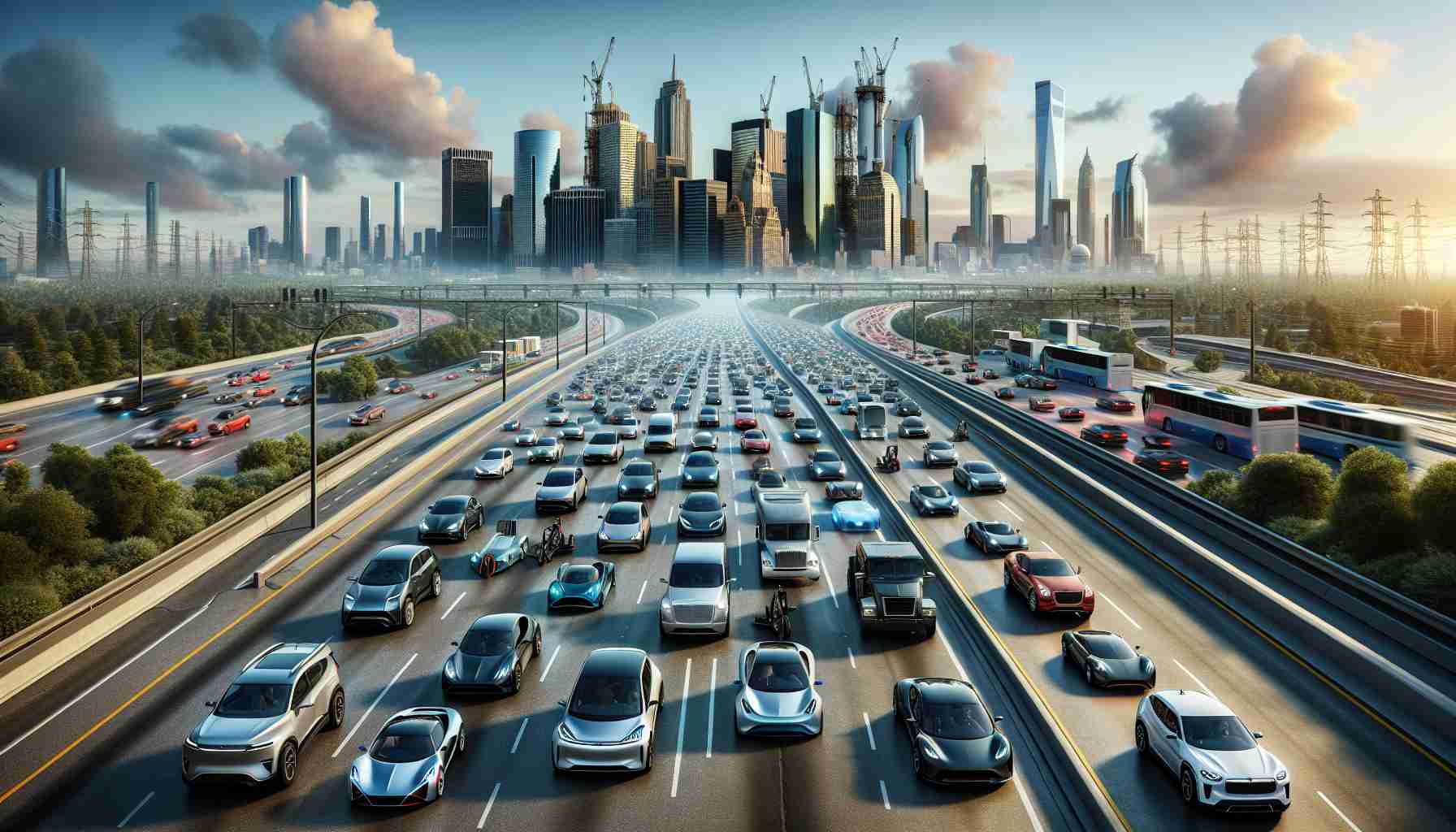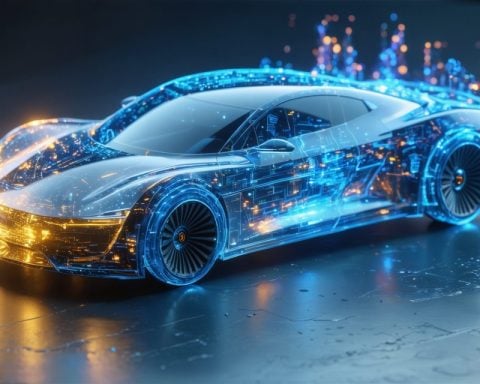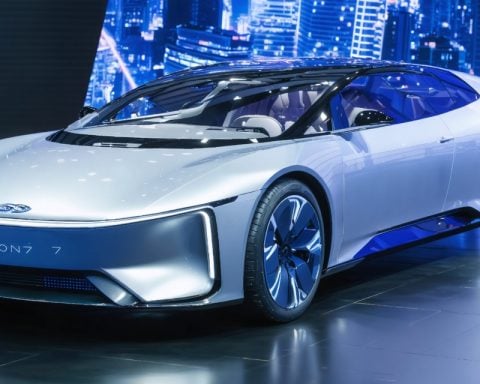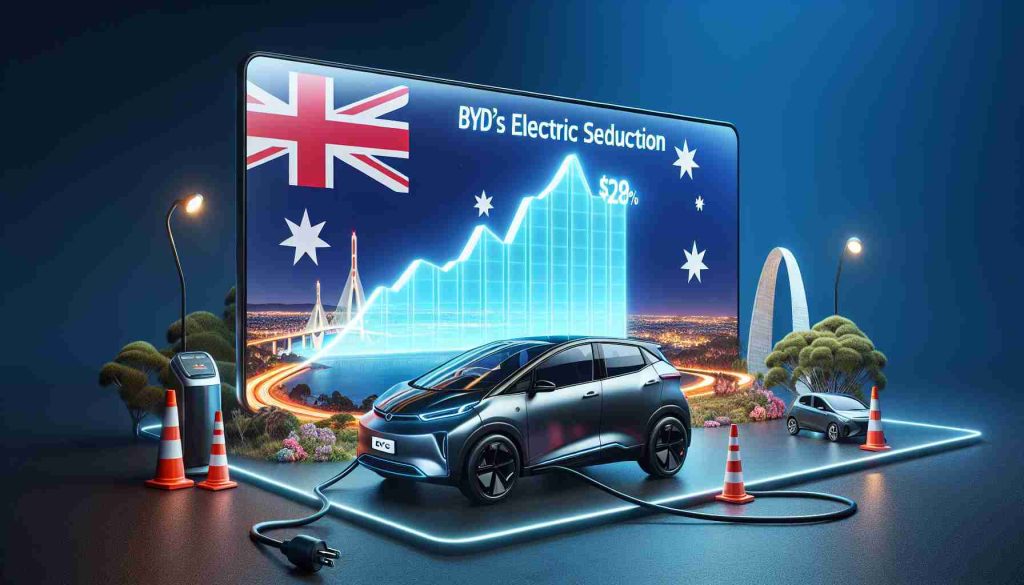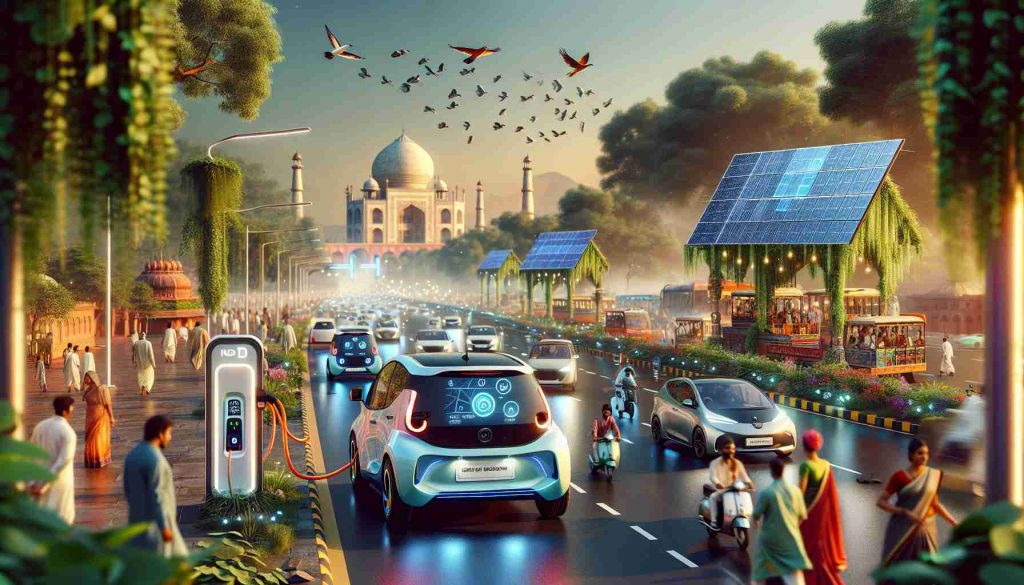The electric vehicle (EV) market is poised for explosive growth over the next three years, according to a recent report from Axis Capital. The surge is attributed to the arrival of robust and affordable models, along with anticipated improvements in the charging infrastructure.
The Auto Expo 2025 showcased a remarkable array of EV launches from top automotive brands, signaling a substantial shift towards electric mobility. The event witnessed minimal emphasis on traditional internal combustion engine vehicles, highlighting the industry’s commitment to electrification. Among the standout reveals, Tata Motors introduced its Harrier and Sierra electric models, while Maruti Suzuki made waves with its global debut of the e-Vitara, a stylish mid-sized SUV featuring impressive range options of up to 500 kilometers.
In addition to Tata and Maruti, Hyundai unveiled the much-anticipated Creta EV, which boasts advanced driver assistance systems and fast-charging capabilities at an appealing price. Meanwhile, global manufacturers such as BYD, MG, and VinFast displayed their innovative upcoming EVs, further enhancing market competitiveness.
As more reliable and affordable electric vehicles roll out, and with the expansion of necessary charging facilities, a groundbreaking transition is set to unfold in the Indian automotive sector. Axis Capital’s predictions indicate that these trends will significantly increase EV adoption, fundamentally reshaping the future of transportation in India.
Electric Vehicles: Transforming Society and the Environment
The surge in electric vehicle (EV) adoption is not merely a technological shift; it heralds broader societal and cultural transformations. As automakers pivot towards electrification, the implications stretch beyond the automotive industry. The rise of EVs fosters a cultural acceptance of sustainable practices, influencing consumer behavior and encouraging environmentally conscious choices across various sectors. Increased visibility of electric cars leads to the normalization of eco-friendly living, impacting urban planning and public policy as cities reassess infrastructure needs to facilitate this transition.
Moreover, the burgeoning EV market introduces significant economic opportunities. The growth is projected to create millions of jobs within the green economy, from manufacturing to maintenance. Enhanced investments in battery technology could also foster innovation, positioning countries like India as potential leaders in the global EV supply chain, particularly in battery manufacturing and recycling.
However, the transition to electric mobility is not without environmental concerns. The production of batteries, particularly lithium-ion types, poses challenges due to mining practices and waste management. Thus, as we look ahead, a critical focus should be on developing sustainable sourcing and recycling methods.
In summary, as the landscape of transportation evolves, it carries profound implications for society, the economy, and the environment, showcasing the intricate balance between progress and sustainability. This pivotal moment presents an opportunity to rethink not only how we drive but also how we integrate innovations into a more sustainable future.
The Future of Electric Vehicles: Unleashing a New Era of Automotive Innovation
The Rise of Electric Vehicles (EVs)
The electric vehicle (EV) market is on the brink of transformative growth, particularly in India, over the next few years. As reported by Axis Capital, the shift is driven by the introduction of a diverse range of affordable and high-performance EV models, alongside vital enhancements in charging infrastructure. This evolution marks a critical point for manufacturers and consumers alike, underscoring the transition to sustainable transportation options.
Key Launches at Auto Expo 2025
The Auto Expo 2025 served as a pivotal platform for showcasing the latest electric vehicles from leading automotive brands. Noteworthy launches included:
– Tata Motors: Revealed the electric Harrier and Sierra, both models designed to cater to the growing demand for practical and environmentally conscious vehicles.
– Maruti Suzuki: Introduced the e-Vitara, a mid-sized SUV boasting an impressive range of up to 500 kilometers on a single charge, setting new standards for urban mobility.
– Hyundai: Launched the Creta EV, featuring state-of-the-art driver assistance systems and rapid charging capabilities, appealing to tech-savvy consumers.
Other global players such as BYD, MG, and VinFast also contributed to the expo, showcasing innovative designs and features that promise to boost the EV segment’s competitiveness.
Pros and Cons of Electric Vehicles
Pros:
– Environmental Impact: EVs contribute to reduced emissions, making them a greener alternative to traditional vehicles.
– Cost Efficiency: As battery technologies improve, the initial cost of EVs is expected to decrease, making them more accessible to a wider audience.
– Convenience: Fast-charging stations are becoming increasingly available, further incentivizing consumers to switch to electric.
Cons:
– Charging Infrastructure: While improvements are underway, the existing charging infrastructure must expand to meet the demands of a rapidly growing EV market.
– Range Anxiety: Despite advancements, many consumers still worry about the distance EVs can travel on a single charge.
– Upfront Cost: Although prices are dropping, EVs may still represent a significant investment compared to traditional vehicles.
Market Trends and Predictions
The anticipated growth in the Indian electric vehicle market will be influenced by several trends:
– Investment in Charging Infrastructure: As the number of EVs increases, substantial investment in charging networks will be crucial to alleviating range anxiety and ensuring user convenience.
– Government Incentives: Policies and incentives aimed at promoting EV adoption will play a significant role in the market’s expansion.
– Consumer Awareness: As educational initiatives regarding EV benefits gain traction, consumer preferences are expected to shift toward sustainable options.
Innovations and Future Insights
The EV market is witnessing a surge in technological innovations, from enhanced battery management systems and sustainable materials to advanced connectivity features. Manufacturers are focusing not only on performance but also on creating vehicles that meet the evolving expectations of eco-conscious consumers.
Conclusion
The electric vehicle sector is set for significant advancements, driven by competitive launches, infrastructure enhancements, and increasing consumer interest. As companies race to innovate and expand their offerings, the transition to electric mobility is not just a trend—it’s becoming the standard for future transportation.
For more insights into evolving automotive technologies and trends, visit Axis Capital.
